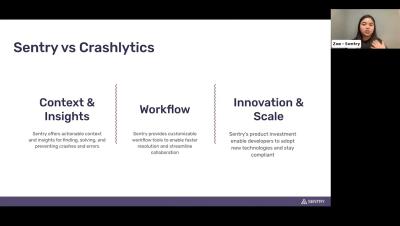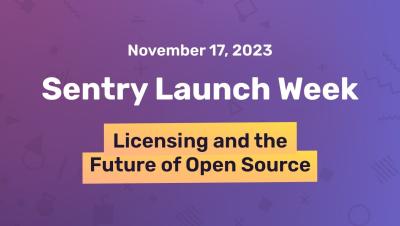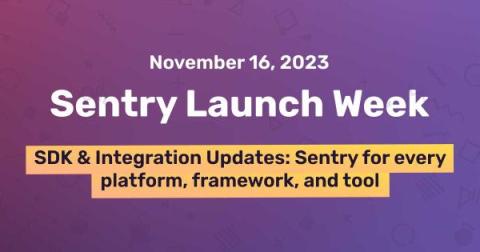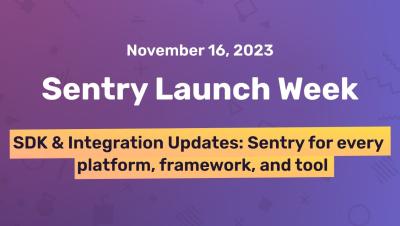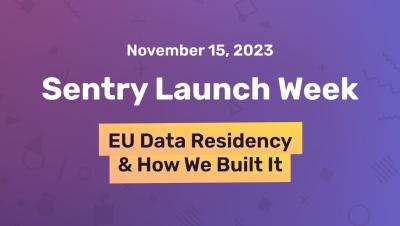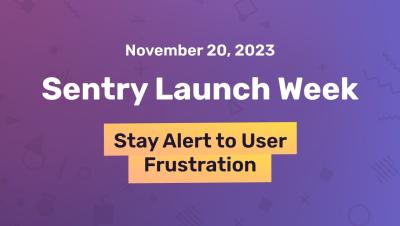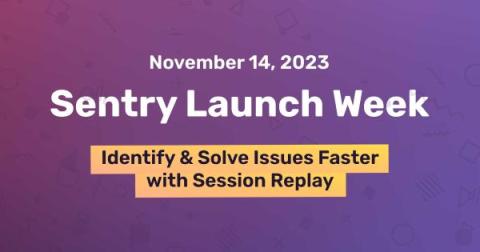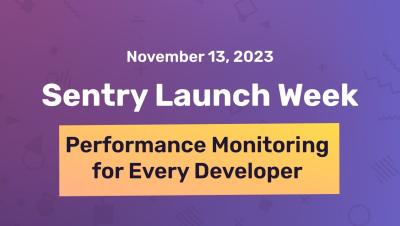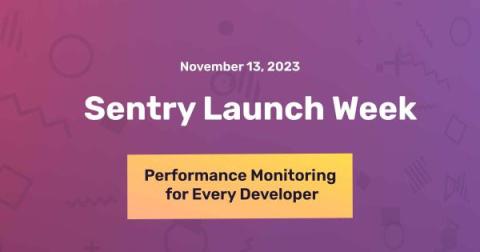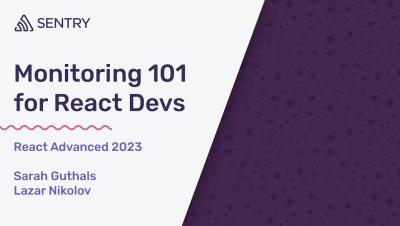Operations | Monitoring | ITSM | DevOps | Cloud
November 2023
Licensing and the Future of Open Source | Day 5 | Sentry Launch Week
Introducing the Functional Source License: Freedom without Free-riding
Sentry started life in 2008 as an unlicensed, 71-line Django plugin. The next year we began publishing it under BSD-3, and ten years later we switched to the Business Source License (BSL or BUSL). Last year we purchased Codecov, and a few months ago we published it under BSL/BUSL as well. That led to some vigorous debate because of our use of the term “Open Source” to describe Codecov, from which emerged this helpful suggestion from Adam Jacob, co-founder of Chef.
SDK & Integration Updates: Sentry for every platform, framework, and tool
It seems like these days there’s a new exciting framework or dev tool launched every week. The challenge is that even if you’re ready and able to use new products, your existing tooling might not be up to the task; it could be months or years before your developer tools add support for the burgeoning platforms you want to use.
SDK & Integration Updates: Every platform, framework, and tool | Sentry Launch Week | November 2023
EU Data Residency & How We Built It | Sentry Launch Week | November 2023
Identify & Solve Issues Faster with Session Replay | Sentry Launch Week | November 2023
Not Every Problem is an Error: Introducing Rage and Dead Clicks + New User Feedback Reports
I know, we’re Sentry the error and performance monitoring platform and we catch production issues. But as you (hopefully) saw during our Launch Week announcement, some broken experiences simply won’t throw an exception. So we built a way to detect when your users are slamming their keys on the keyboard in frustration, and to even let them contact you directly when that doesn’t go their way.
Performance Monitoring for Every Developer | Sentry Launch Week | November 2023
Performance Monitoring for Every Developer: Web Vitals & Function Regression Issues
Extracting relevant insights from your performance monitoring tool can be frustrating. You often get back more data than you need, making it difficult to connect that data back to the code you wrote. Sentry’s Performance monitoring product lets you cut through the noise by detecting real problems, then quickly takes you to the exact line of code responsible. The outcome: Less noise, more actionable results.
A story about HTTP status codes and why you should read documentation
Since 2020, I’ve been working on an Express (Node.js framework) application to power viewer interactions and events that happen whilst I’m streaming live coding on Twitch — my Twitch bot. Since using Sentry for error monitoring and crashes using the Sentry Node SDK, I’ve already squashed quite a few bugs that were entirely a result of my own terrible code.
Improved GraphQL Support in Sentry
Beautiful syntax-highlighted GraphQL errors are coming — get ‘em while they’re fresh! Not that we encourage you to add more errors of any kind to your code. But if you do, they’ll now look so much better in Sentry.
Monitoring 101 for React Developers by Sarah Guthals & Lazar Nikolov | React Advanced 2023 Workshop
What's the difference between API Latency and API Response Time?
Your app’s networking directly affects the user experience of your app. Imagine having to wait a few seconds for the page to load. Or even worse, imagine waiting for a few seconds every time you perform an action. It would be infuriating! Before you go on a fixing adventure, it’s a good idea to understand what causes that waiting time. So let’s do that!
October Product Updates for Sentry
Hey, you. Yes, you. Do you want to fix broken code faster and easier? Of course, you do. Who doesn’t? Well, lucky for you, we dedicated the whole month of October (and every other month) to helping you do just that. Checkout what’s new from Sentry and our friends at Codecov.


